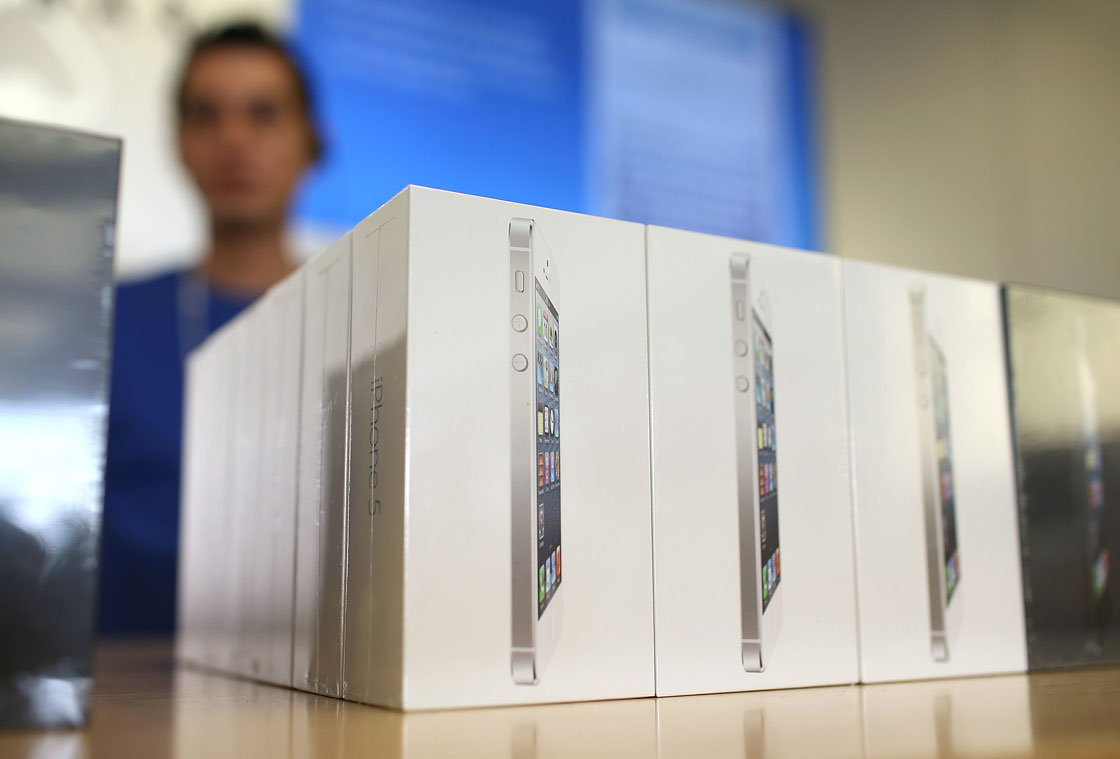TORONTO – Writer Steve Burgess doesn’t like to use his cellphone in public.

While data shows cellphone users are increasingly jumping to smartphones, Burgess still carries his trusty flip phone.
He knows his “stupid phone,” as he calls it, is made by Samsung but has no clue what model it is.
He’s part of a rapidly shrinking minority that has resisted upgrading to an iPhone, Android device or BlackBerry.
A telephone survey conducted for the Media Technology Monitor this fall with 4,001 Canadians suggested about 83 per cent of the anglophone population owned a cellphone, up from 80 per cent in 2011 and 74 per cent in 2010.
About two thirds of the mobile phone owners polled said they had a smartphone and the other third had an older non-smartphone — called feature phones in the telecommunications industry.
According to MTM, non-smartphone users are more likely to be female, older, have a lower income, live in a small community and have less education.
The survey found smartphone owners tend to be male, younger, live in a high-income household with children in the home, and residents of a community of one million or more people. Students also rank high among smartphone owners.
Burgess says he definitely feels like he’s in a small club of non-smartphone users. He’s been teased for his choice of phone.
“I don’t pull it out in public very much but it has happened (where) there’s been instances of genuine shock, jaws naturally dropping open, (people saying), ‘Oh, you have one of those?'”
Burgess says the antiquated phone has served him well for many, many years even though it was far from top-of-the-line when he originally bought it.
“I got this one because it was the one I could get for free,” says Burgess. He says he’s mostly held onto it out of laziness (he just hasn’t explored his upgrade options) and an effort to be frugal.
“As a freelance writer my income fluctuates widely and I need to keep my monthly expenses to a minimum and I just don’t want to have a larger monthly cellphone bill,” he says.
“I’ve actually given consideration to dropping the thing entirely because it’s not like it’s ringing all the time for me.”
Rogers says about 71 per cent of its customers have bought a smartphone and that number is expected to continue rising as owners of older phones near the end of their contracts.
“It’s really the exception when someone walks into a store that they go to a feature phone (but) I think we probably still have a couple of years where there will be niches of customers that will be interested in something basic,” said the company’s senior vice president of consumer marketing Phil Hartling.
“There’s still a group of customers who when they’re looking for the first phone for their son or daughter they kind of like the basic features of a feature phone and not to be worried about the child using Internet browsing.”
John-Kurt Pliniussen, an associate business professor at Queen’s University, said most consumers are jumping on the mobile computing bandwagon but some may decide to skip the smartphone step and choose another device.
He noted his wife still carries a flip phone, not because she’s not a technophobe but because she decided she’d rather buy a tablet than a smartphone. Many consumers rarely use smartphones for calls anymore, he added.
“My wife doesn’t rely on the telephone that much, she just has different needs,” he said.
“I know people who don’t use a smartphone because they have an iPad. And so what they’ve decided is because of the fees (for a phone) their iPad gives them enough access to the things they want.”
The MTM survey results are considered accurate within plus or minus 1.5 percentage points 19 times out of 20.



Comments